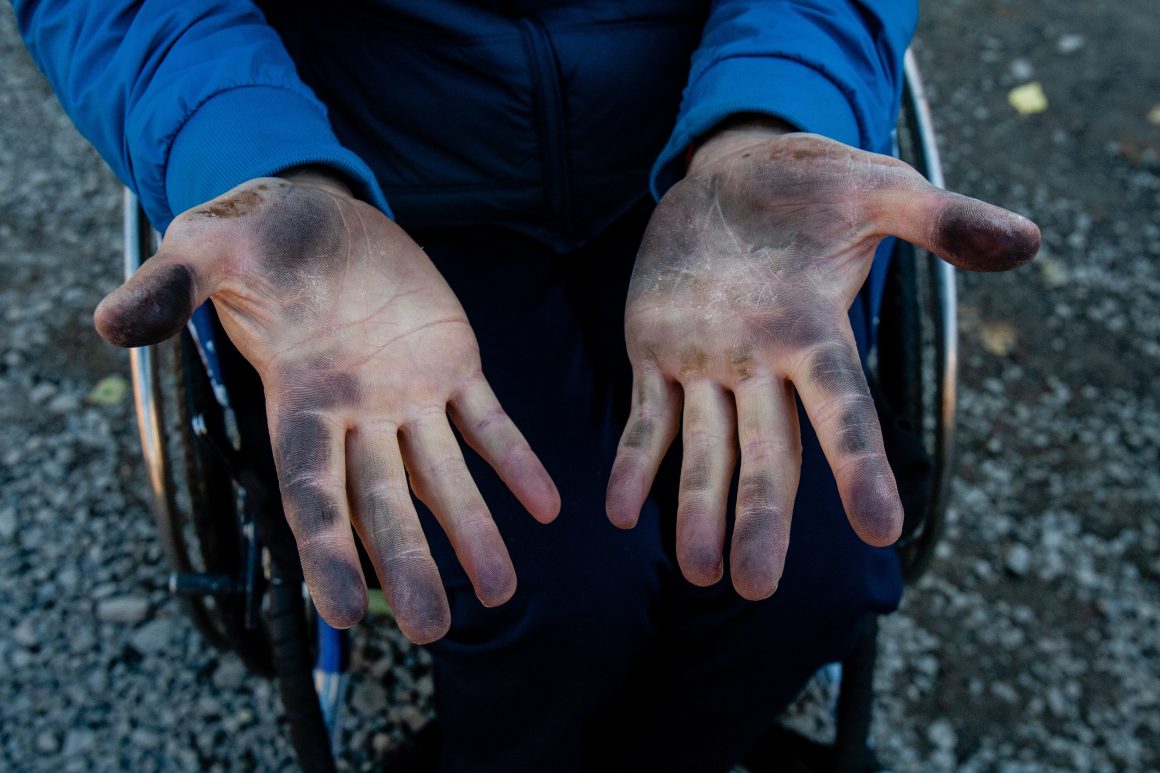War undermines the lives, health, and safety of all human beings, but for approximately 2.7 million persons with disabilities and their families living in Ukraine, the situation is much worse. Although accurate statistics are hard to come by, many Ukrainians with a disability, especially those with the most severe conditions, have not been able to flee the war and have been struggling to find safety.
According to the UN’s Office of the High Commissioner for Human Rights (OHCHR), the United Nations Convention on the Rights of Persons with Disabilities requires states to ensure the inclusion of people with disabilities when meeting their obligations under international law, including international humanitarian and human rights law. Ratified by both the Russian Federation and Ukraine, the Convention requires (Article 11) to state “States Parties shall take, in accordance with their obligations under international law, including international humanitarian law and international human rights law, all necessary measures to ensure the protection and safety of persons with disabilities in situations of risk, including situations of armed conflict, humanitarian emergencies and the occurrence of natural disasters”.
However, Ukraine, in particular its Eastern part, has been experiencing a humanitarian emergency since 2014. Even before the recent escalation of the conflict, many persons with disabilities experienced difficulties accessing humanitarian aid, healthcare, and basic resources for safety (for example, living in a displacement camp with no clear footpaths and no accessible information for persons with a visual impairment or places with no accessibility for wheelchairs or people with mobility reduction). The 2021 report on the humanitarian needs of Ukraine by the UN Office for the Coordination of Humanitarian Affairs (OCHA), estimated that out of the 3.4 million people in need in Eastern Ukraine, at least 13 percent had some type of disability. In addition, it is extremely important to consider that this report has been developed during the outbreak of the Covid-19 pandemic, which means that the urgent humanitarian situation for this vulnerable group has only gotten worse after the conflict started, mainly because more people could have developed new disabilities as they got injured during the attacks.
Daily, persons with disabilities face significant barriers in accessing healthcare and other social services, food, employment, and education in Ukraine. Now, with the escalation of the conflict and Russian troops in the country, they are facing a high risk of losing their lives because of not having access to safe evacuation, shelter, and humanitarian assistance.
According to representative organizations of persons with disabilities in Europe, the situation “is appalling. For example, shelters in Kyiv are inaccessible, so people with disabilities are forced to stay at home, not knowing where they can go“, as stated by Yannis Vardakastanis, President of the International Disability Alliance (IDA) and the European Disability Forum (EDF).
The ableism (discrimination against persons with disabilities) and the lack of proper training of humanitarian aid staff are also some of the challenges faced by the Ukrainians with disabilities in the war. When they manage to flee to another country these individuals also need to deal with the absence of accessibility, as well as healthcare and social security.
Even though disability is a complex and multidisciplinary issue, it is important to ensure that all people with disabilities are accounted for, protected, and provided with immediate access to humanitarian aid, taking into account their individual support requirements. Refugees and internally displaced people with disabilities, and people with disabilities in refugee-like situations, need to be provided with support tailored to their individual requirements at border crossings, reception and accommodation facilities, and to also be provided with relocation assistance.
Children with disabilities should be provided with individualized support to ensure they are not separated from their families and are protected from institutionalization and other harmful practices, such as trafficking. Therefore, the risk management protocols must be revisited and the concept of inclusion should be revised in the humanitarian aid field to fully understand and embrace the needs of people with disabilities, who are particularly vulnerable in situations of active conflict and war.




1 comment
16 October, 2022 @ 06:41 William Davies
It is sickening to think of these people being trapped in such a perilous situation. To be unable to get to the shelters wondering if the next missile will hit is terrible. Such is the reality of war. I pray that Putin is charged for this despicable wickedness and that people like yourself will follow up any means of justice and fellowship the war disabled face and experience. I can imagine their carers who stay by their helpless dependants. Such a dilemma. If Nato become anymore involved, a nuclear holocaust will ensue. Sitting here in comfort and fragile safety renders me useless. Such sadness, madness. Those invalid disabled are paying the price of Russia’s treatment in WW2. Embittered hatred from a man whose mentality clings on to such futility. It makes me embarrassed to be a human. Much love to Ukraine and especially her disabled.